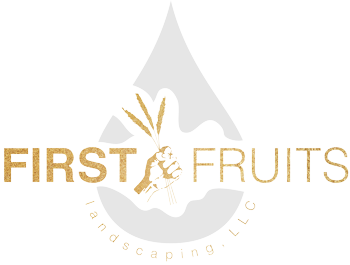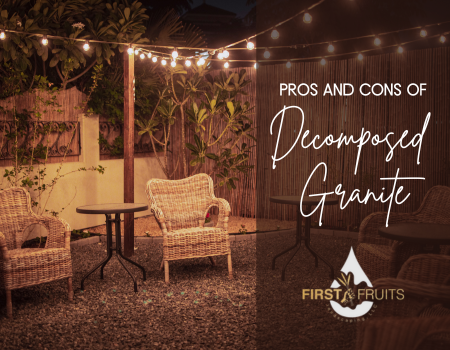Decomposed granite (DG) has recently been gaining popularity as a more affordable material for a range of landscaping projects, one of the most common being patios. Its natural appearance and affordability make it a popular option for many homeowners who are hoping to elevate their outdoor space while sticking to a budget, however, using decomposed granite comes with a list of pros and cons. Weighing the pros and cons against each other can help you decide if it’s truly the best material to be used for your next landscaping project.
Pros of Decomposed Granite
- Natural Aesthetics: One of the primary reasons homeowners opt for DG is its natural appearance. The earthy tones and textured surface of decomposed granite add a rustic charm to outdoor spaces, blending seamlessly with the surrounding landscape.
- Permeability: Properly installed DG allows water to penetrate the surface, promoting better drainage compared to solid surfaces like concrete or asphalt. This permeability reduces the risk of puddles forming on the patio and helps prevent water runoff, contributing to sustainable landscaping practices.
- Low Maintenance: Once compacted, stabilized DG requires minimal maintenance. Unlike traditional pavers or concrete, there’s no need for regular sealing or weeding. Additionally, DG resists the growth of weeds, thanks to its compacted nature and lack of organic matter.
- Pet-Friendly: For households with furry friends, decomposed granite can be a great pet-friendly option. It’s non-toxic and won’t harm animals if ingested, however, loose decomposed granite may stick to pets’ paws, so it’s important to clean their feet after walking on it so DG isn’t drug into your home.
Cons of Decomposed Granite
- Erosion and Shifting: Without proper stabilization, decomposed granite is susceptible to erosion and shifting, especially in areas with heavy foot traffic or after heavy rainfall. Over time, the individual crystals and minerals in the granite break apart, leading to the formation of small pebbles that can migrate and create uneven surfaces.
- Weather Vulnerability: In regions with considerable rainfall like the PNW, DG may not be the best choice for patios. When exposed to moisture, loose decomposed granite can become mushy and muddy, detracting from its aesthetic appeal and potentially creating safety hazards.
- Limited Stability: While stabilized decomposed granite offers improved stability, loose decomposed granite may spread and rut over time, or become so compacted that it forms an impermeable layer, hindering drainage. This can result in water pooling on the patio surface and increased susceptibility to damage from rain, snow, and UV rays.
- Maintenance Challenges: Despite its low maintenance nature, decomposed granite requires periodic upkeep to maintain its appearance and functionality. Without proper attention, loose granite can spread easily and may require re-leveling or replenishing to prevent rutting and compaction.
DG provides a great and affordable option for patio construction, offering natural aesthetics and low maintenance for homeowners. However, it’s essential to weigh the pros and cons carefully before making a decision. Proper installation techniques by a professional landscaping company, including stabilization methods can eliminate many of the challenges associated with DG, ensuring a durable and visually appealing outdoor space for years to come. If you’re ready to reconstruct your outdoor space, contact our team of professional landscapers today.

